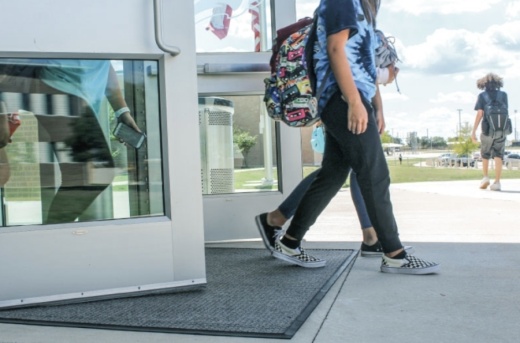For one, the district has postponed its $175 million bond elections from May 2 to Nov. 23. It canceled its graduation ceremonies for the senior class of 2020, according to a Facebook post April 9. And, like public school districts across the state, it has shifted classes to e-learning until at least May 4.
“We are not trying to duplicate what would be taking place in our classrooms; that’s impossible,” WISD Superintendent Tim Harkrider said in a phone interview. “We don’t expect parents to take over for a teacher; we’re just giving opportunities for kids to be exposed to some academics. Whatever a child can work through in a day or not work through in a day is okay.”
In a way, the district had unknowingly prepared for an unforeseen pandemic last year, Harkrider said. In August 2019, WISD rolled out its 1-1 initiative, which matched students in need with digital devices and created an online learning platform.
“We were really set up pretty well,” Harkrider said.
Now, one of the biggest challenges is the lack of Wi-Fi connectivity for some students, he said, Much of the district is still fairly rural, but Harkrider estimated less than half do not have access to Wi-Fi.
The district still offers paper options for students who do not have Wi-Fi or prefer to not complete their assignments online. Most of the students who opt for paper options are at the elementary level, he said.
Weekly Zoom and Facetime sessions are scheduled so students can still see and interact with their classmates, Harkrider said. With schools closed, Harkrider said many students have realized just how important in-person interactions are with their peers.
“We’ve seen kids posting on Twitter that they miss school, and they’re 16 and 17 [years old],” he said. “That would never have happened in September.”
For special education students, Harkrider said case managers are calling to check in with parents, but the lack of personal instruction is difficult.
“Without that face-to-face connections, it’s just different,” he said.
And as for sports and fine arts, Harkrider said it was especially difficult for seniors—such as those in spring tennis, track and field, and soccer—to have their seasons cut short. Harkrider said he hopes the University Interscholastic League will move start times up earlier for fall sports such as volleyball and football so students will have more training time now that their offseason was cut short.





